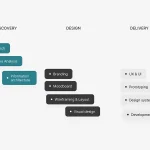
There are many different types of agricultural investments. Investing in agricultural stocks can be beneficial for long-term investors because they can provide a variety of products and services. For example, agricultural stocks often provide essential foods like corn, soybeans, and wheat. Because agricultural commodities are considered consumer staples, their demand is not affected by the broader economy. This makes them an excellent long-term investment. But which agricultural investment is right for you?
One type of agriculture investment is agribusiness. Investing in agribusiness can benefit both you and the world. Investing in agriculture will help keep farmers in business and keep the world fed and clothed. Moreover, agricultural investments also support family-run businesses that provide jobs and training. Investing in agriculture is a good way to diversify your portfolio. There are several ways to generate profits with agricultural investments.
While many agricultural investment companies own farmland and operate them, some are merely holding assets in an agricultural investment fund, receiving annual income based on agricultural yields or price premiums. Other investment companies lease land to independent farmers, receiving annual income based on lease payments or mortgage payments. While these returns may seem modest, they are often attributed to a variety of factors including international grain prices and lack of organic farmland valuations.
A good agricultural investment can provide an additional source of income, while also improving productivity. Farmers benefit from the higher price of coffee internationally. This makes agricultural investments attractive for both farmers and investors. This investment also helps strengthen government institutions that support investment planning. In addition to helping farmers, agricultural investment in development can also improve local economies, while simultaneously promoting rural economies. In addition, it promotes better livelihoods and social cohesion in the rural areas.
The sourcebook, titled Responsible Investment in Agriculture, provides a comprehensive guide for developing countries to improve their policies and create a climate that is favorable for agricultural investment. In this way, the handbook is useful for policymakers in many countries around the world. The authors provide a practical framework for agricultural investment, which is not merely a generic set of prescriptions. This handbook has many examples of best practices that show how agricultural investment can lead to sustainable returns.
Many investors see agriculture as a recession-proof sector. Regardless of the economic status of the global economy, people will always have a need for food. Investing in agricultural investments is an excellent way to do this. However, buying a farm is an expensive and risky endeavor. And operating the farm can incur additional expenses. As such, agricultural investors have many other options to consider. So, which one is best for you? It is important to do your research and understand the different options available.
A growing number of investors are turning their attention to farmland. Some are traditional investors who see farmland as a stable asset with a low correlation to mainstream asset classes. Others are impact-oriented, seeking financial returns while addressing societal issues at the same time. For example, impact-oriented farmland investment companies and food-centric credit unions are developing innovative financial mechanisms that support farmers’ needs. Soil wealth is a good asset for a long-term investment.







